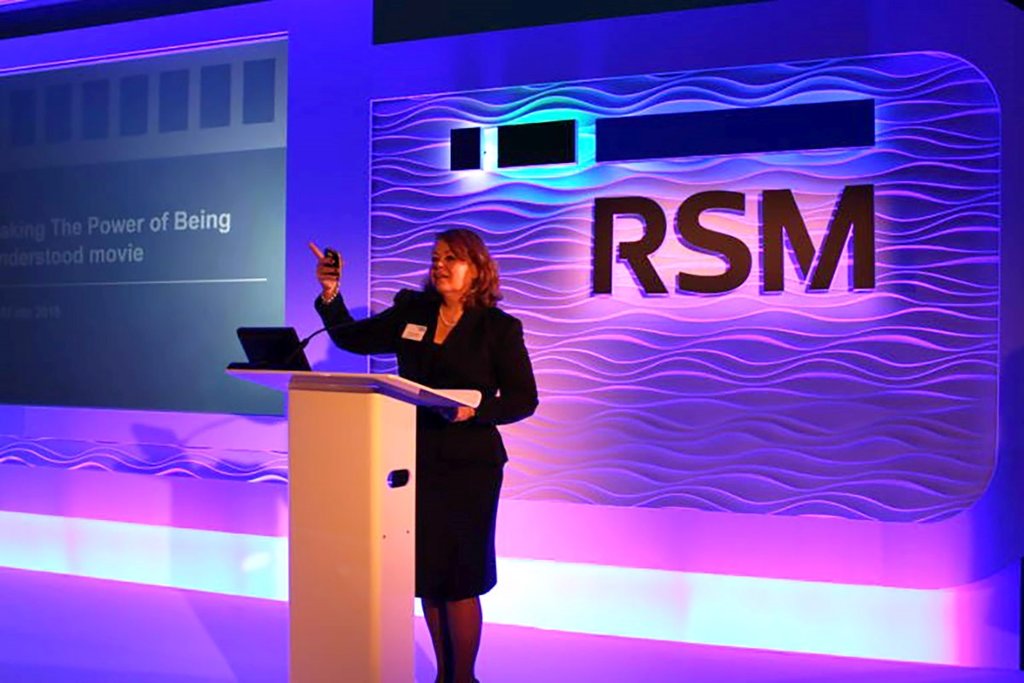CEO Thought Leadership
A tipping point: the critical skills that need to be prioritised
Jean Stephens, CEO of RSM International shares her rewarding career journey and expresses her concerns over slow take up rates for CPA certifications and audit’s bad rep

In September 2022, Christina Ho, a member of the Public Company Accounting Oversight Board, warned that the drop in people sitting for the certified public accountant (CPA) exam is creating a skills shortage and should be considered a “crisis”.
This headline naturally caught my attention as my background is in public accounting, but the stats are hard for anyone to ignore. Even before the pandemic, the number of people sitting for the CPA exam had already hit a decade low.
Why is this concerning? Accountants, whether they be tax professionals, advisors or auditors, play a critical role within the global economy and business in instilling confidence and providing transparency. The industry must be passionate about these values to succeed, but without continuously nurturing the talent and essential skills that underpin these roles, we face a tipping point.
Audit’s bad rep
Unfortunately, today we only need to look at how auditing has evolved over the last 10 years to understand that we are on the brink of a ‘scarce skills crisis’. Our industry, especially audit, is in a transformative phase as the acceleration of digital solutions shapes the way we perform traditional tasks.
Of course within RSM we believe in the power of technology. Identifying and analysing extensive and complex data from sources beyond basic financial information, for example, can provide valuable insight into key discrepancies or risk areas as part of an audit. In fact, a recent survey by Gartner found that attracting talent with non-traditional skills in areas such as data analytics, IT and cyber security to audit is the top challenge for audit leaders this year. Does this issue stem from audit’s bad reputation?
I read with amusement recently that one of the global accounting bodies shared this light-hearted declaration, “We’ve heard the rumours that accounting is nerdy and boring…we’ve gotta let you in on a secret. That is just not true.” Well, I couldn’t agree more and I know others do too.
In my role as global CEO of RSM, when meeting with our leaders and professionals around the world, I am in constant dialogue with many who have prepared for and achieved chartered accounting credentials. Some of these professionals are still working in providing auditing services today, some have moved into broader senior leadership roles, but what they have in common is a first-hand appreciation of the skills acquired as an auditor and how they transfer into other areas of business and life.
Above all else, these professionals don’t describe their career choice as ‘nerdy’ or ‘boring’, even in a self-deprecating way. They are quick to share their experiences in audit and the word ‘rewarding’ comes up often. That’s something I can relate to.

Jean Stephens graduating from University of Redlands in California
When I was 20 years old, I graduated from University of Redlands in California hopeful that a qualification in accounting would lead to vast career options. What I didn’t realise then, that I can appreciate now, is that qualifying as an auditor opened up new opportunities to see the world, work with smart people and talented professionals from different cultures and become a business leader within a growing, global organisation.
The power of critical thinking
For some time, I have said that being an auditor means much more than simply reviewing the accuracy of a company’s financial records (although that is, of course, an essential component of the day job!). It goes way beyond that.
Auditors possess the gift of being able to peer underneath the surface. We don’t claim to have a supernatural ability or a crystal ball to see into the future, but rather an aptitude for harnessing a mix of intuition, tenacity and critical thinking to make assessments. And we must not forget, a healthy dose of scepticism at all times too!
Of course, these skills aren’t developed over night. They are honed over time with hands-on experience and training. With this experience comes the ability to view the world in a ‘critique-driven’ mind-set.
This mind-set is an important one. This year, the World Economic Forum published its Future of Jobs Report which found that critical thinking and analysis are some of the most important skills that need to be developed over the next three years in order for us to overcome the economic impact of COVID-19, and to keep pace with digitalisation.
Championing our talent
I feel passionate about many things within our innovative and dynamic industry – and one is that we need to feel comfortable celebrating and promoting the benefits of an education in accounting to ensure we can evolve with global changes, instil confidence in our stakeholders and regulators, and become more agile, inclusive and successful.

Jean Stephens at the 2017 RSM World Conference in Berlin
At RSM, we have long seen the value in investing in our people by creating platforms to not only learn but to share knowledge and collaborate. One successful programme that I am proud of is the RSM Academy, now in its 15th year. It brings together RSM professionals from across the globe to learn how others think, to collaborate and to embed innovation and excellence in everything we do as an international team.
The accelerated pace of change in professional services and the risk of a critical skills shortage mean we must evolve the way that we represent our industry by lifting the lid on what it’s really like and de-myth some of the misconceptions that it is a dull career choice - I can assure you it is anything but ‘dull’ or ‘boring’.